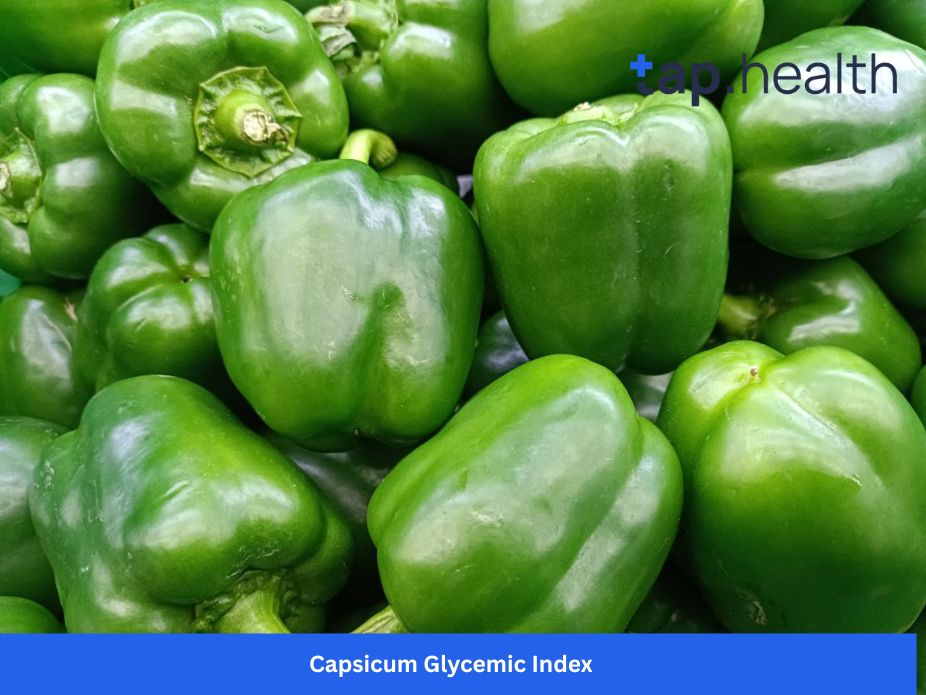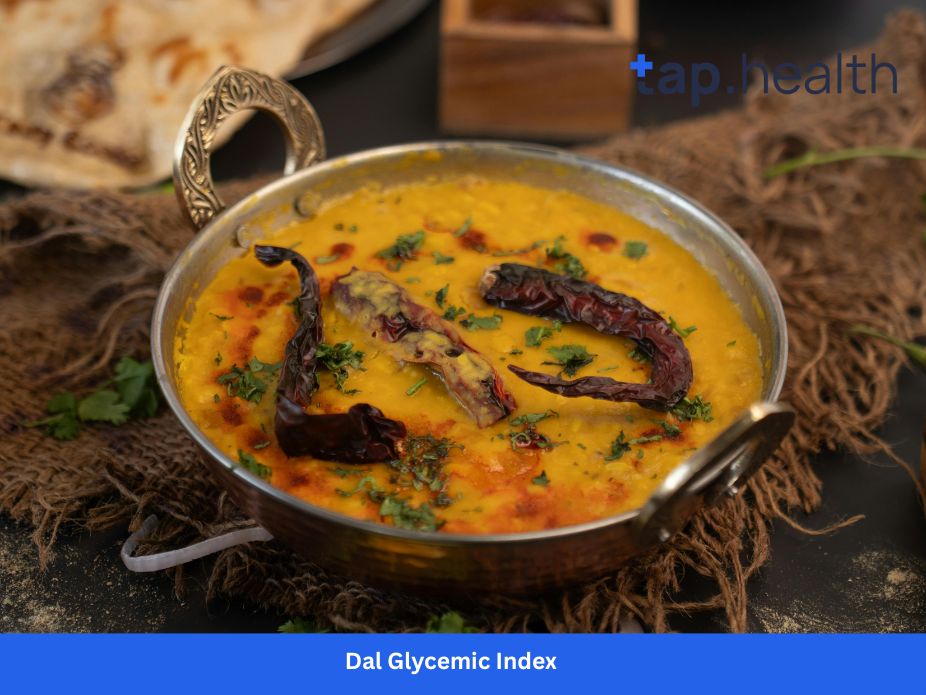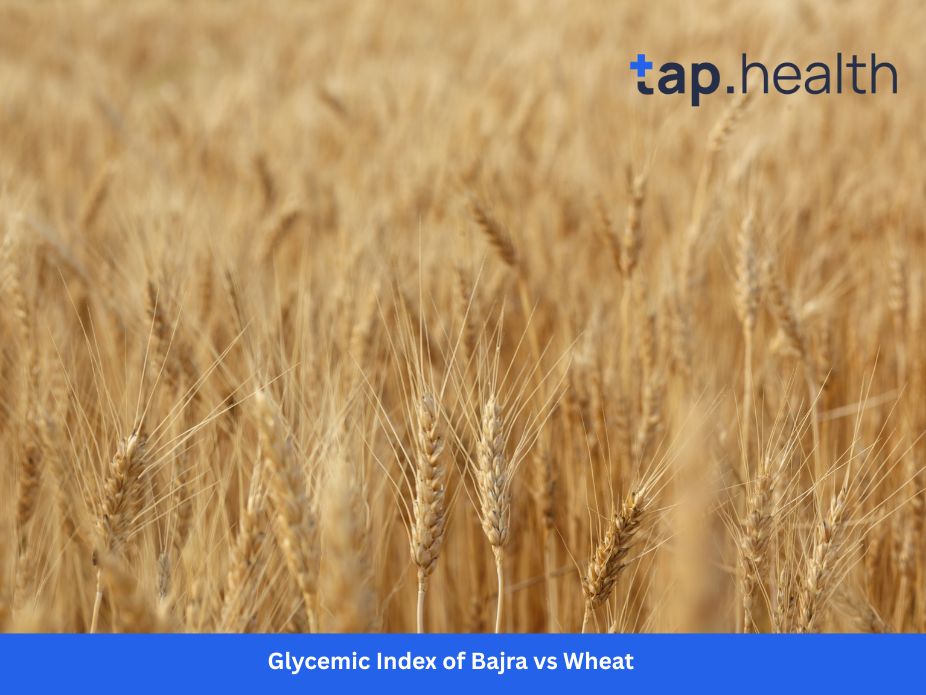Capsicum, commonly known as bell pepper, is a popular vegetable used in various dishes worldwide. It is not only flavorful and colorful but also packed with essential nutrients. But did you know that capsicum has a low glycemic index (GI)? This makes it an excellent choice for people who are looking to maintain stable blood sugar levels. In this blog post, we’ll explore the glycemic index of capsicum, its impact on blood sugar levels, and its benefits to health.
What is Glycemic Index (GI)?
Before diving into the glycemic index of capsicum, it’s important to understand what the term “glycemic index” means. The glycemic index is a measure of how quickly a food raises your blood sugar levels after consumption. Foods with a high glycemic index cause a rapid increase in blood sugar, while foods with a low glycemic index have a slower, more gradual effect.
- Low GI (55 or less): Foods that are digested slowly, keeping blood sugar stable.
- Medium GI (56–69): Foods that cause a moderate increase in blood sugar.
- High GI (70 or more): Foods that cause a sharp spike in blood sugar.
Now, let’s see where capsicum fits in.
Glycemic Index of Capsicum
Capsicum has a low glycemic index, typically around 15, depending on its variety and ripeness. This means that capsicum does not cause a significant spike in blood sugar levels when consumed. In fact, capsicum is often recommended for people with diabetes or those looking to maintain a balanced blood sugar level.
Why Does Capsicum Have a Low Glycemic Index?
The glycemic index of a food is influenced by several factors:
- Fiber Content: Foods high in fiber digest more slowly, leading to a slower rise in blood sugar.
- Water Content: Capsicum has a high water content, which helps slow down its digestion and absorption.
- Carbohydrate Type: The carbohydrates in capsicum are simple sugars that are absorbed slowly, preventing rapid spikes in blood glucose.
Health Benefits of Capsicum
Now that we know capsicum has a low glycemic index, let’s look at some of its health benefits.
1. Rich in Vitamins and Antioxidants
Capsicum is packed with essential vitamins, particularly Vitamin C. A single serving of capsicum can provide more than 100% of the daily recommended intake of Vitamin C. This vitamin plays a crucial role in boosting the immune system, fighting off infections, and supporting skin health. Capsicum is also rich in Vitamin A, which is vital for eye health.
Moreover, capsicum contains powerful antioxidants like carotenoids (such as beta-carotene and lutein), which help protect the body against oxidative stress and may reduce the risk of chronic diseases like heart disease and cancer.
2. Supports Weight Loss
Capsicum can be a great addition to a weight-loss diet. Its low calorie and high fiber content make it filling, helping you feel satisfied longer without consuming excess calories. Additionally, the capsaicin compound found in hot varieties of capsicum (like chili peppers) can help increase metabolism and fat-burning.
3. Improves Digestion
Capsicum is a good source of fiber, which is beneficial for digestive health. Fiber helps regulate bowel movements and prevent constipation. It also promotes the growth of healthy gut bacteria, improving overall gut health.
4. Regulates Blood Sugar Levels
Due to its low glycemic index, capsicum helps maintain stable blood sugar levels. This makes it a perfect choice for people with diabetes or those who are at risk of developing the condition. Its fiber content also slows the absorption of sugars, further stabilizing blood sugar levels.
5. Heart Health
Capsicum contains several nutrients that promote heart health, including potassium, which helps regulate blood pressure, and flavonoids, which may improve blood circulation and reduce inflammation. By supporting healthy blood vessels and reducing oxidative stress, capsicum contributes to overall cardiovascular health.
How to Include Capsicum in Your Diet
Including capsicum in your diet is easy, and there are countless ways to enjoy its benefits. Here are a few ideas:
1. Raw in Salads
Chop up some fresh capsicum and toss it into your salads. The sweet and slightly tangy flavor pairs well with other vegetables and greens.
2. Roasted or Grilled
Roast or grill capsicum to enhance its natural sweetness. You can serve it as a side dish or include it in wraps, sandwiches, or bowls.
3. In Stir-Fries and Curries
Capsicum adds flavor and texture to stir-fries and curries. Simply slice it up and toss it into your favorite dish for added color and nutrients.
4. Smoothies and Juices
For a refreshing twist, blend capsicum into your smoothies or juices. It pairs well with citrus fruits like oranges and lemons.
5. As a Topping
Use sliced capsicum as a topping for pizzas, omelets, or pasta dishes for an extra boost of flavor and nutrition.
Capsicum vs. Other Vegetables: A Comparison of Glycemic Index
While capsicum has a low glycemic index, how does it compare to other popular vegetables?
| Vegetable | Glycemic Index |
|---|---|
| Capsicum (Bell Pepper) | 15 |
| Carrot | 35 |
| Tomato | 15 |
| Potato (Boiled) | 78 |
| Sweet Potato | 63 |
| Corn | 52 |
| Broccoli | 10 |
As you can see, capsicum has one of the lowest glycemic indices among commonly consumed vegetables. This makes it a better choice for maintaining stable blood sugar levels compared to higher-GI options like potatoes and sweet potatoes.
Is Capsicum Safe for People with Diabetes?
Yes, capsicum is an excellent food choice for people with diabetes. Its low glycemic index ensures that it doesn’t cause a rapid increase in blood sugar levels. Moreover, it is low in calories and high in nutrients, making it a healthy addition to a balanced diet. Capsicum’s rich fiber content helps improve digestion and keeps you feeling full, which can help manage hunger and prevent overeating.
However, as with any food, it’s essential to eat capsicum in moderation and as part of a well-rounded diet. If you’re unsure about how capsicum fits into your specific dietary needs, it’s always a good idea to consult a healthcare professional.
Can Capsicum Help with Blood Sugar Control?
Yes, capsicum can play a role in blood sugar control. Due to its low glycemic index, it does not cause significant spikes in blood glucose levels. The fiber in capsicum also slows down the absorption of sugars, helping to maintain more consistent blood sugar levels throughout the day.
Additionally, capsicum is rich in antioxidants, which may help reduce inflammation and oxidative stress, factors that are linked to insulin resistance and diabetes. By supporting overall health and helping to manage blood sugar levels, capsicum can be a beneficial food for those managing diabetes.
How Tap Health Helps in Diabetes Management
Managing diabetes effectively requires more than just monitoring blood sugar levels; it involves balancing meals, exercise, medication, and lifestyle choices. Tap Health provides a user-friendly, all-in-one app that guides users through these crucial aspects. Here’s how it works:
1. Personalized Meal Plans
Eating the right foods is a cornerstone of diabetes management. Tap Health offers personalized meal plans that are tailored to your unique needs and preferences. The app considers your daily caloric requirements, portion sizes, and the types of foods that are best suited for managing blood sugar. Whether you love roti, rice, or curries, Tap Health ensures you can enjoy your favorite meals while keeping your blood sugar levels in check. The AI-powered app even adjusts portions to suit your specific diabetes goals.
2. Smart AI Analysis for Meal Insights
Tap Health takes meal tracking to the next level with its Smart Scanner and AI Analysis. You can simply take a picture of your meal, and the app will instantly break down its nutritional content, including carbs, calories, and portion sizes. This allows you to make informed decisions about your meals and adjust portions for steady blood sugar levels.
3. Easy Glucose Logging
Keeping track of your glucose readings is made simple with Tap Health. The app allows you to record fasting and post-meal blood sugar levels and view your data in an easy-to-understand format. You can spot trends, identify spikes, and track your progress over time. The app also sends reminders to ensure you never miss logging your glucose levels, helping you stay on top of your diabetes management.
4. 24/7 Diabetes Assistant
Tap Health’s AI Diabetes Assistant is available round-the-clock to provide expert advice whenever you need it. The app can answer questions about diet, exercise, sleep, stress management, and more. Whether you’re unsure about your meal choices or need guidance on managing stress, Tap Health is always there to offer personalized tips based on your current health data.
5. Custom Workouts for Diabetes
Exercise plays a crucial role in managing blood sugar levels, but it can be difficult to find the right workouts, especially if you have health limitations. Tap Health takes the guesswork out of exercise by crafting simple home workouts that are customized to your fitness level and health condition. The app adapts your workout routine based on your schedule and any weather conditions, ensuring that you stay active, no matter what.
6. Medication Reminders
Taking medications on time is essential for managing diabetes, and Tap Health makes sure you never miss a dose. The app sends timely medication reminders that are aligned with your daily schedule and mealtime habits. It even tracks your adherence to ensure you stay on track with your prescribed medication.
FAQ on Capsicum Glycemic Index
1. What is the glycemic index of capsicum?
The glycemic index of capsicum is around 15, which is considered low. This means it has a minimal effect on blood sugar levels.
2. Can capsicum be eaten by people with diabetes?
Yes, capsicum is safe for people with diabetes. Its low glycemic index and high fiber content make it an excellent choice for managing blood sugar levels.
3. How can I include capsicum in my diet?
You can enjoy capsicum in salads, stir-fries, roasted dishes, smoothies, and even as a pizza topping. It’s a versatile vegetable that can be added to many meals.
4. Is capsicum good for weight loss?
Yes, capsicum is low in calories and high in fiber, making it a great food for weight loss. It helps you feel full for longer without adding many calories to your diet.
5. Are there different types of capsicum with varying glycemic indices?
Capsicum (bell pepper) generally has a glycemic index of around 15, regardless of the color or variety (green, red, yellow, or orange). However, ripeness and preparation methods can slightly affect the GI.
6. Can capsicum help with heart health?
Yes, capsicum contains nutrients like potassium and flavonoids, which support heart health by regulating blood pressure and improving blood circulation.
Conclusion
Capsicum is a low-glycemic vegetable that offers a variety of health benefits. Its ability to maintain stable blood sugar levels, coupled with its rich vitamin and antioxidant content, makes it an excellent addition to a healthy diet. Whether you’re looking to manage diabetes, lose weight, or simply eat more nutritious foods, capsicum is a tasty and versatile option.
By incorporating capsicum into your meals, you can enjoy all these benefits while keeping your blood sugar levels in check. So, go ahead and add this colorful and nutritious vegetable to your next dish!



